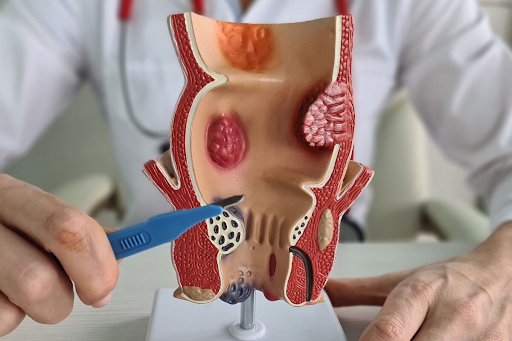Living with hemorrhoids can be uncomfortable and distressing, especially when pain and swelling affect daily activities. While many people manage symptoms with lifestyle changes or medications, some cases require surgical treatment for lasting relief. One of the most effective solutions is the hemorrhoidectomy procedure, a medical treatment designed to remove severe or persistent hemorrhoids and restore comfort. Understanding how this procedure works and its benefits can help individuals make informed decisions about improving their health and quality of life.
Understanding Hemorrhoids and Their Impact
Hemorrhoids are swollen veins that develop in or around the rectal area. They can cause symptoms such as pain, itching, bleeding, and discomfort during bowel movements. In many cases, mild hemorrhoids improve with home remedies, dietary adjustments, or topical creams. However, when symptoms become chronic or when the hemorrhoids are large and painful, medical intervention becomes necessary. Untreated hemorrhoids can significantly impact one’s lifestyle, leading to difficulty sitting, working, or even sleeping comfortably.
When to Consider the Hemorrhoidectomy Procedure
The hemorrhoidectomy procedure is usually recommended when other treatments fail to provide relief. It is particularly beneficial for individuals with large internal or external hemorrhoids, or when complications such as blood clots or excessive bleeding occur. A doctor will assess the severity of the condition and suggest surgery if it’s the best path to recovery. The goal of the procedure is to completely remove the swollen tissue, allowing normal healing and long-term comfort.
What Happens During a Hemorrhoidectomy Procedure
A hemorrhoidectomy is performed under anesthesia, ensuring that the patient feels no pain during surgery. The surgeon carefully removes the hemorrhoidal tissue and seals the area to prevent further bleeding. Depending on the technique used, stitches may or may not be required. While it’s a surgical process, modern medical advancements have made the hemorrhoidectomy procedure much safer and more efficient than in the past. Recovery usually takes a few weeks, and most patients experience a noticeable reduction in pain and discomfort shortly afterward.
Benefits of the Hemorrhoidectomy Procedure
One of the main advantages of undergoing a hemorrhoidectomy is the long-term relief it provides. Unlike temporary treatments that only ease symptoms, this procedure eliminates the source of the problem. Patients often report improved comfort when sitting or walking, better bowel movements, and an overall improvement in quality of life. Additionally, the risk of recurrence is significantly lower after surgery, which gives patients peace of mind and confidence in their recovery.
Recovery and Post-Surgery Care
After a hemorrhoidectomy, following the doctor’s advice is essential for a smooth recovery. Patients are usually encouraged to eat fiber-rich foods, drink plenty of water, and avoid straining during bowel movements. Mild discomfort or soreness may occur during healing, but it can be managed with prescribed medications. Keeping the area clean and maintaining good hygiene also helps prevent infection. With proper care, most individuals return to normal activities within a few weeks and feel much better than before surgery.
Improving Quality of Life After Treatment
Once healed, patients often notice a significant improvement in their daily comfort and confidence. Simple activities such as sitting for long periods, exercising, or going to work become easier and pain-free. The hemorrhoidectomy procedure not only addresses the physical discomfort caused by hemorrhoids but also reduces emotional stress and embarrassment related to the condition. Living without constant pain allows individuals to focus on enjoying life again and maintaining healthy habits.
Conclusion
The hemorrhoidectomy procedure is a proven and effective solution for people struggling with severe or recurring hemorrhoids. By removing the affected tissue and promoting proper healing, it helps restore comfort, health, and confidence. While the idea of surgery may seem intimidating, the long-term benefits often outweigh the temporary discomfort of recovery. Consulting a qualified medical professional can help determine if this procedure is the right choice, paving the way toward a more comfortable and improved quality of life.



